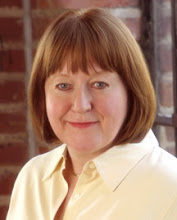Much is being made of Victor Lebow’s statements in a 1955 article about price competition published in the Journal of Retailing about the US economy needing a “constantly expanding capacity to produce.” The attention derives from an enormously popular video now being circulated in schools, which was produced by Annie Leonard, a former Greenpeace activist, called “The Story of Stuff.” More on Leonard’s video in a later blog.
What interests me most today is the assertion Lebow makes that “The very meaning and significance of our lives are today expressed in consumption terms.” I have written about this before (May 4, 2009, “Brand Fervor”). But Lebow’s statements in the middle fifties occur right at the dawn of the consumer religiosity:
“Our enormously productive economy demands that we make consumption our way of life, that we convert the buying and the use of goods into rituals, that we seek our spiritual satisfactions, our ego satisfaction, in consumption. The measure of social status, of social acceptance is now to be found in our consumption patterns.”
The similar stimulus patterns in the brain produced by true religious feelings and brand loyalty that Martin Lindstrom describes in Buyology (2009) are foretold here, over 50 years ago, just as the Age of Branding was getting a full head of steam. True, modern branding and brand management are generally attributed to a P&G internal memo written by Neil McElroy on May 13, 1931, but we were not to witness the full impact of branding until two difficult decades later when our pent-up demand as consumers finally emerged full blown in the ‘50’s.
The link between an ever expanding economy connected to individual identity really lies at the root of the American Experience, but it is not until the 1950’s that our article of faith—The Manifest Destiny—found its inspiration in consumer aspirations not in the divine. Now, as we have finally understood that an ever expanding economy, like Western Expansion, is a delusion, perhaps our social satisfactions may attach themselves to something more lasting, more (dare I say it) spiritual than material consumption.
More on Pent Up Demand, Manifest Destiny, and the New Economy in upcoming blogs.
Back from a brink
-
I’m back. Here’s where I’ve been. Most of you should not care, but for
those wanting a medical update, here’s the tale. Two weeks ago, on Sunday,
Jan. 1...
3 weeks ago


1 comment:
Although I'm more of a fan of brand advocacy than of brand loyalty, I'm enjoying your posts about parallels between brand loyalty and religion. As with any metaphor, the parallels are limited. Just because Martin Lindstrom found similar stimulus patterns in the brain is not sufficient evidence for me that the two are congruent. Beyond accepting the limitations, I prefer that my business metaphors make business, not just poetic, sense by having implications for retailing action.
One key link between brand loyalty and religion is the significance of ritual. In the current break from an ever-expanding economy, perhaps the rituals on the two sides of the metaphor could be seen as deriving from vows of poverty!
Well, maybe it's not that extreme, but I do see opportunities for retailers to build store and product brand advocacy by helping shoppers who want to control their expenditures. Stores that provide shopping carts with calculators built in and brands that provide smaller sizes can build the important capital of consumer gratitude for later use.
I don't agree, Carolyn, that an ever-expanding economy is a delusion. Economic expansion and contraction run in cycles.
Post a Comment